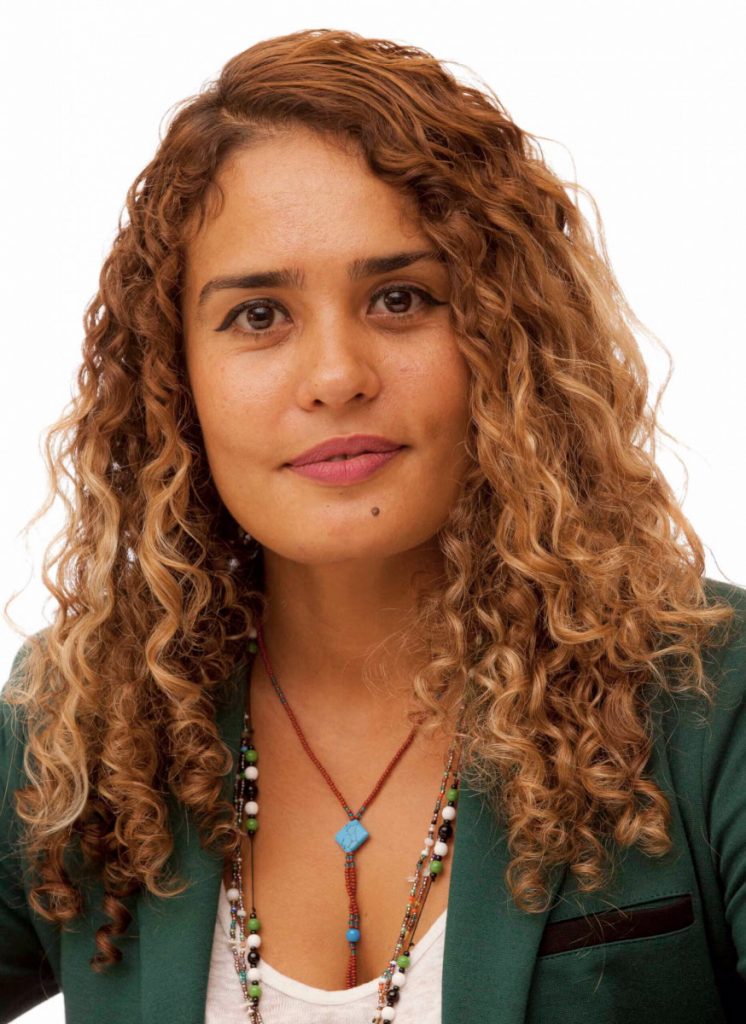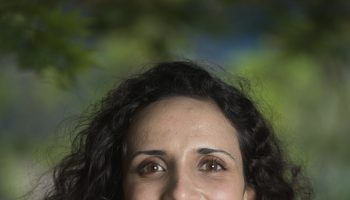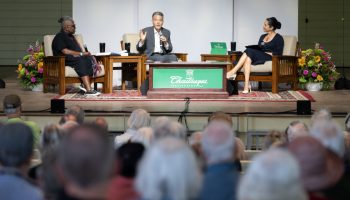
Julia Weber
Staff Writer
Suzi Mirgani, editor and assistant director for publications at Georgetown University in Qatar’s Center for International and Regional Studies, will deliver the morning lecture at 10:45 a.m. today in the Amphitheater.
Mirgani continues the Week Eight theme “The Middle East: The Gulf States’ Emerging Influences” with a lecture focusing on her research studying the intersections of art, culture and identity in the Middle East.
In her lecture, Mirgani said she will bring a mixture of both her personal experiences as a practicing artist and researcher as well as an analytical perspective of the larger cultural sector in the Gulf Cooperation Council states.
She said that in Qatar, where she lives, only about 10% of the population is native, while 90% migrated to Qatar.
To her, arts and culture are what unites so many individuals from so many parts of the world across experiences through art mediums and spaces.
“This is an economic migration. They’re from all over the world; they’re from every imaginable, conceivable nationality,” Mirgani explained. “So, what brings people together? In my opinion — in my humble opinion — it’s the arts.”
Mirgani explained that the Gulf States, similar to countries around the world, often develop branding to support their economic efforts and this branded appearance doesn’t always align with citizens’ lived experiences.
Particularly in the arts and culture sector, Mirgani said, the interests and positions of independent artists and the governments can vary vastly. While governments are concerned with boosting economic efforts like tourism and popular culture, artists are often more focused on addressing sociopolitical issues, according to Mirgani.
“That’s where I think the importance of the arts really comes (into) play, is that you don’t gloss over things,” she said. “You take it and you discuss it and you debate it and you screen it at film festivals and people — other audiences — get to come and debate issues.”
Mirgani said that because governments have a much bigger scope of influence in determining the prevailing narrative compared to that of independent artists, social change can sometimes look as if it happened overnight — but in actuality, artists and others advocating for social change may have been lobbying for changes for years.
She used the example of Saudi Arabia and the overturning of some conservative laws when Prime Minister Mohammed bin Salman stepped into power in 2017. While outside of the country, these changes seemed “seismic” and “overnight,” people in Saudi Arabia had been advocating for these changes for years.
“What the world sees is the seismic changes,” she said. “What the Saudis see is that they have been campaigning for this for years through film, through art.”
In her lecture, she said she will show a few examples of how this advocacy and organizing exerted pressure to overturn conservative legislation, particularly that which targeted women and banned them from engaging in daily activities such as driving.
Mirgani said the increased focus on the arts and culture sector is born out of the need to establish an alternative economy for these countries, which rely heavily on profits from oil and gas.
“These governments, these countries are built on hydrocarbons. They’re built on oil, they’re built on gas. These are their economies for many years, but these hydrocarbons are financed,” she said. “At one point in the future, they’re going to run out and everyone’s going to say ‘Hey, hang on, why didn’t we plan an alternative economy?’ ”
Mirgani explained these countries have pivoted to funding cultural pursuits, like popular and high entertainment, as a way of building this alternative economy. She said many blockbuster films, such as “The Fast and the Furious,” “Mission Impossible” and “F1,” all shot footage in Gulf countries.
“Those give the Gulf a different flavor and they give them an international fame that is all positive and something that can be understood by audiences all around the world,” she said.
As an independent filmmaker herself, Mirgani sees it as her role to highlight the voices of other independent artists “because, otherwise, you might never know of any other perspective other than what the Gulf governments want you to see.” It is this message that she hopes to impart upon listeners during today’s lecture.
“There is no way that you can bind in excess because art is always more than you see,” she said. “There’s a lot you can say by focusing on storytelling, by focusing on empathizing with the human element of the arts, that nobody can control.”




